Transfer Pricing in Malta
Malta introduced Transfer Pricing Rules by virtue of Subsidiary Legislation 123.207 which became effective as from 1 January 2024. A grandfathering period extends up to 31 December 2026 for arrangements entered into before 1 January 2024 and which are not materially altered on or after that date. The guidelines provide some examples of what constitutes a material alteration and what doesn’t constitute a material change for the purposes of the transfer pricing rules.
A material alteration includes:
- a change in the consideration or a change in the method which determines the consideration of an arrangement,
- a change in the rights and/or obligations undertaken by the parties to the arrangement, which change affects the risks undertaken by the respective parties, and in turn may change the remuneration under such arrangement, and
- a change in the duration of an agreement.
On the other hand, non-material alterations include:
- Adjustments to an arrangement involving minor administrative details such as changes in address, contact details including representatives of the parties, account numbers referring to bank accounts into which payments are to be affected and payments terms,
- Unilateral changes to the internal operation of either party intended to support the performance of the obligations under the arrangement, even if this results in a change in profit margins,
- The re-domiciliation of a company into or out of Malta, or the transfer of a company’s residence to Malta, and
- Changes to parties arising from a merger provided the new party inherits the same rights and obligations arising out of the arrangement.
The above examples are not to be taken as exhaustive lists.
Scope of the Transfer Pricing Rules
The Transfer Pricing Rules apply to cross-border transactions, agreements and dealings entered into by associated enterprises or where the involvement of the non-associated enterprise is artificial. An associated enterprise is defined as a body of persons with more than 75% owned or controlled by the same person or persons or else when a body of persons owns or controls another body of persons. In the case of a Multinational Enterprise Group (MNE Group), the percentage is reduced from 75% to 50%.
Thresholds and Exclusions
Apart from the relationship between the parties which may determine whether an arrangement is within or outside the scope of the transfer pricing rules, there are also thresholds and transactions below the following amounts are excluded from the transfer pricing rules:
- Transactions of a revenue nature below €6 million in a financial period, and
- Transactions of a capital nature below €20 million in a financial period.
Dividends are not to be taken into account when determining the revenue for a particular financial period. However, distributions in kind may need to be considered. Also, in ascertaining the total income of a company, the arm’s length prices are to be considered.
Loans and Risk Capital
An enterprise or body of persons falling within the scope of the Transfer Pricing Rules shall first determine whether the loans or other debt it borrowed or any portion thereof, should bear interest or not for the purposes of the Transfer Pricing Rules before determining whether such loans or other debt constitute qualifying risk capital for the purposes of the Notional Interest Deduction. However, amounts brought forward such as unabsorbed losses and unabsorbed NID in respect of arrangements that were outside scope are not required to be restated in terms of the Transfer Pricing Rules.
Documentation Requirements
The documentation which must be held by taxpayers must be in line with the OECD Transfer Pricing Guidelines. The Master file shall include the information outlined in Annex I to Chapter V of the OECD Transfer Pricing Guidelines. The Local file shall include the information outlined in Annex II to Chapter V of the OECD Transfer Pricing Guidelines. The said files must be made available in English or Maltese and retained for a period of nine years from the end of the period to which the arrangement in question refers to or the date of that arrangement, whichever is the later.
Methods and Guidelines
The local rules rely on the OECD guidelines not only when it comes to the documentation but also with respect to transfer pricing methods including the simplified approach for low value adding intra group services. In the case of the latter, it is also acceptable to determine the arm’s length charge in accordance with the EU Joint Transfer Pricing Forum guidelines.
Rulings and Advance Pricing Agreements
The Transfer Pricing Rules also provide for unilateral transfer pricing rulings which may be issued against a fee of €3,000 and remain valid for a period of five years. Renewals of such rulings are also possible provided the application is made six months prior to its expiry and against a fee of €1,000. The Transfer Pricing Rules also provide for Advance Pricing Agreements (APAs) in which case the above-mentioned fees are revised to €5,000 for the initial application and €2,000 for the renewal.
How we can help
EMCS may assist not only with the applications for unilateral transfer pricing rulings and APAs, but with the documentation to be kept by taxpayers falling within the scope of the rules and analysis to determine whether arrangements between associated enterprises fall within the scope of the said rules.
Ready to find out more?
Drop us a line today for a consultation meeting!
Insights
- Tax Treatment of Highly Skilled Individuals Rules, 2026 February 17, 2026
- Malta Personal Income Tax Rates February 11, 2026
- EMCS Helps Businesses Access Funding Through Malta Enterprise’s Green Mobility Scheme February 3, 2026
- Market Researcher Interviewers January 29, 2026
- Market Research Interviewers January 29, 2026


